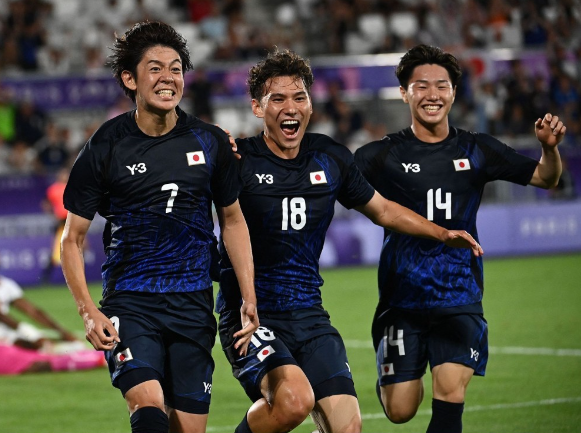
In the second round of the Olympic men's soccer group stage, Japan U23 and Mali U23 had a fierce battle on the green field. The match was not only about the standings of the two teams, but also a comprehensive test of the technical and tactical level of both sides.
In the first half, both players showed a high level of athleticism, and the pace of offense and defense was fast and fierce. Japan U23 created many dangerous situations in front of Mali U23's goal with their delicate footwork and tacit understanding, but failed to convert them into goals. On the other hand, Mali U23 relied on their physical advantages and excellent counter-attacking ability to bring a lot of pressure to the Japanese defense.
As time went by, the game gradually entered a white-hot stage. In the 82nd minute, there was a sudden change in the field as Japan U23 organized a threatening attack in front of the field. After a series of passes and coordination, the ball finally came to the feet of Rihito Yamamoto. With his keen sense of goal and calm shooting skills, he added a successful shot in the melee in front of the goal and sent the ball into the goal of Mali U23, breaking the deadlock for Japan and taking a 1-0 lead.
The goal boosted the morale of the Japanese U23s, who continued to intensify their attack in an attempt to increase their advantage. Mali U23, on the other hand, were not to be outdone, and they launched a frantic counterattack to try to equalize the score at the last minute. However, just as the game was coming to an end in extra time, a dramatic scene took place on the field. Japan U23's Sata Kawasaki committed a handball foul while defending in the penalty area, and the referee decided to award a penalty kick. This gave Mali U23 a great chance to equalize.
However, Mali U23's forward Cheikhna Dumbia failed to capitalize on the sudden penalty kick opportunity. His penalty kick was off-target and he missed the chance to equalize. With the referee's whistle, the match ended with Japan U23 defeating Mali U23 1-0.






























